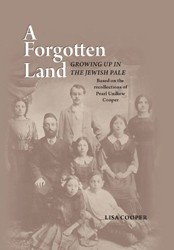On Long Winter Nights is rich with details about Jewish family life in Galicia prior to the devastating horrors of 1939. In 1869, Jews constituted more than 10 percent of the population of Galicia. Life in the small Galician town of Reden, where the Bergner family lived, was modest. The family managed an estate and was able to enjoy a comfortable living. Hinde Bergner, who was invested in the struggle for self-emancipation, was determined to get a worldly education; her family was committed to helping her. Bergner mocked her kheyder teachers, her matchmakers, and even the Hasidic rabbi. Fluent in three languages — Yiddish, Polish and German — she was part of a generation of “reading Jewish women” who brought modern ideas and sensibilities into traditional society. The young Bergner found freedom in secular education, but at the same time, she longed for romantic love.
By 1900, the economic situation of Galician Jewry was in decline. Poles and Ukrainians boycotted Jewish merchants; and ordinary Jews were again blamed for the country’s problems. In the summer of 1939, Nazi forces came into Galicia and gave Jewish residents two hours to leave their homes. By 1941, the Nazis had taken control of all of Galicia and murdered most of its Jews. It is believed that Hinde Bergner and her brother both died in Belzec, a Nazi extermination camp, in 1942 or 1943. The memoir provides important information about Jewish life in the pre-Holocaust- era small towns and hamlets of Galicia. The Bergner family, responsible for the book’s publication, recognized its social and scholarly significance. Social historians interested in shtetl life will find much of value in its descriptions and in the lively crisp drawings and photographs of Bergner family members.




